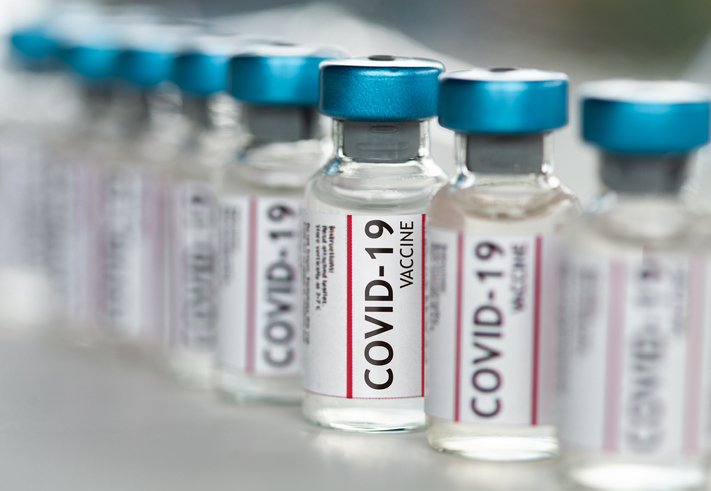A GP who suffered a severe brain injury believed to have been triggered by a first dose of a Covid-19 vaccine is pleading with the Government to grant Covid-19 vaccination certificates to those unable to receive a second dose due to medical reasons.
The female GP contracted and recovered from Covid-19 in March 2020 while working, and then received her first dose of the AstraZeneca (Vaxzevria®) adenoviral vector Covid-19 vaccine in February this year as part of the frontline healthcare worker vaccination programme.
She suffered the first of numerous brain seizures shortly after vaccination and had neurosurgery in June for her brain injury, which was deemed as being triggered by the AstraZeneca vaccine. The suspected adverse reaction has been reported to the Health Products Regulatory Authority (HPRA).
Her neurologist, GP and microbiologist have advised against getting a further dose of an adenoviral vector Covid-19 vaccine, and there is an unclear risk in getting an alternative mRNA Covid-19 vaccine, she said.
Because of this the GP is ineligible to be granted a Covid-19 vaccination certificate under current regulations. Consequently she is unable to participate in situations where a Covid-19 vaccination certificate is mandatory and is worried about how it will affect her ability to return to work and provide care for her patients. She remains on sick leave and faces further specialised medical treatment.
While the National Immunisation Advisory Committee (NIAC) advises that those who have previously had a laboratory confirmed case of Covid-19 infection in the nine months prior to their first dose of a Covid-19 vaccine do not need a second dose to be classed as fully protected, the doctor is outside this window as she contracted Covid-19 11 months before she received her first dose. She believes this is an arbitrary cut-off, and said many medical colleagues agree with her and believe she is fully protected.
NIAC recently advised the Minister for Health that: “Where a second vaccine dose of a homologous schedules is contraindicated, a heterologous vaccine schedule can be used, irrespective of whether the first dose was an mRNA or adenoviral vector vaccine.” And: “For those who have already had a first dose of Vaxzevria® and who did not complete the vaccination schedule as recommended, an mRNA vaccine should be offered in line with their priority grouping or age cohort.”
However, as the GP in question has been advised against further vaccination due to the nature of her medical situation she remains in limbo. She said she now fears being forced to immigrate to the UK where there is going to be a medical exemption in place for situations where Covid-19 vaccination is required.
The doctor has been in contact with NIAC, the HSE’s Chief Clinical Officer Dr Colm Henry, the National Immunisation Office (NIO) and the Department of Health, all of whom she said cannot help her. She was advised to contact her local TDs, which she has now done, and she has also contacted the Irish Medical Organisation (IMO) for assistance.
The doctor stressed that her reaction was incredibly rare and likely related to an undetected developmental predisposition she was unaware of before vaccination, as it was completely clinically silent and therefore she was unidentifiable in her risk.
She told the Medical Independent that she was aware of a small number of similar cases who are also not eligible for a Covid-19 vaccination certificate, following a serious reaction to their first dose.
“My particular situation exposes a gap in the legislation as there currently is no provision for exemption to completing vaccination on medical grounds. This needs to be addressed at government level to protect people who have suffered serious adverse reactions to a Covid-19 vaccine.
“I am advocating on behalf of myself and other people in my position, who wish to complete the vaccine programme but due to genuine serious medical reasons cannot and therefore are not afforded the benefits associated with a Covid-19 vaccination certificate and are now facing exclusion from certain services and potentially work,” she said.
Commenting on her case, former IMO President and GP Dr Martin Daly said the legislation is very rigid, and it is a novel and evolving situation.
“The State needs to respond nimbly to exposed practical inconsistencies and unforeseen consequences for citizens. There must be provision for flexibility in exceptional cases such as this, most especially in the context of a major adverse reaction to a Covid-19 vaccine in the interest of natural justice.”













Leave a Reply
You must be logged in to post a comment.